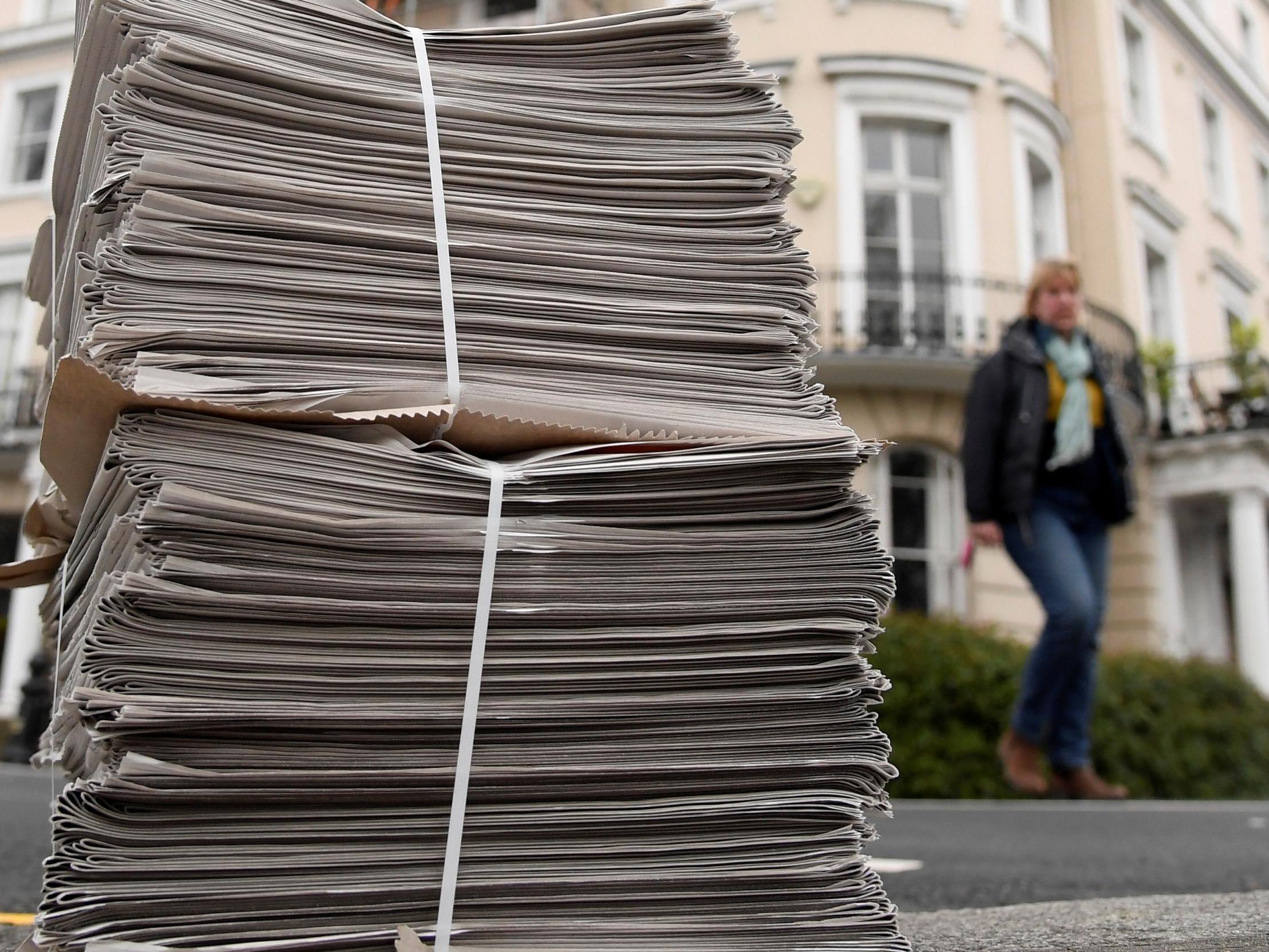‘Save the fourth emergency service’: Culture secretary urges people buy a paper as press struggles amid coronavirus crisis
Oliver Dowden also instructs companies to stop practice of ad-blocking – demanding adverts are not placed next to articles about Covid-19

Your support helps us to tell the story
From reproductive rights to climate change to Big Tech, The Independent is on the ground when the story is developing. Whether it's investigating the financials of Elon Musk's pro-Trump PAC or producing our latest documentary, 'The A Word', which shines a light on the American women fighting for reproductive rights, we know how important it is to parse out the facts from the messaging.
At such a critical moment in US history, we need reporters on the ground. Your donation allows us to keep sending journalists to speak to both sides of the story.
The Independent is trusted by Americans across the entire political spectrum. And unlike many other quality news outlets, we choose not to lock Americans out of our reporting and analysis with paywalls. We believe quality journalism should be available to everyone, paid for by those who can afford it.
Your support makes all the difference.Culture secretary Oliver Dowden has asked the public to help protect what he called the country’s fourth emergency service – newspapers.
The minister pleaded with people across the UK to “add one small thing” to their to-do list and buy a paper as he admitted the coronavirus pandemic had caused the “biggest existential crisis” in the history of the press.
National and regional titles have seen advertising revenues plummet and circulation decline amid the Covid-19 crisis.
“Newspapers are at heart of the British media and essential to its vibrant mix,” the MP for Hertsmere wrote in The Times. “People across the country are rising to the coronavirus challenge and I suggest we all add one small thing to our to-do list: buy a paper.”
He added that he had instructed the country’s 100 biggest brands to end so-called ad-blocking, the practice in which companies demand their adverts are not placed next to articles about certain subjects – in this case Covid-19.
Mr Dowden wrote: “National, regional and local newspapers are under huge financial pressure, largely because of plummeting commercial advertising on their printed pages and websites.
“Falling demand for advertising has also been exacerbated by something called keyword blocking, where advertising linked to specific keywords is prevented from being served on papers’ web pages. Some major UK brands and parts of the advertising industry are blocking adverts appearing next to coronavirus-related news stories…
“So today I am asking companies and the advertising industry to act and do all they can to resolve this issue. I have written to the 100 biggest brands in the UK to urge them to review their advertising policies and check they are not inappropriately blocking adverts from appearing next to news providing a vital public service.”
The intervention came after two of the UK’s biggest publishers cut wages for staff in efforts to mitigate the crisis.
The Daily Mail and General Trust, which owns the Mail, Metro and the i newspapers, has imposed a pay cut on all staff earning over £40,000 a year.
And Reach, owner of the Mirror and Express as well as hundreds of regional newspapers, said all staff would see a pay cut of at least 10 per cent.
Join our commenting forum
Join thought-provoking conversations, follow other Independent readers and see their replies
1Comments